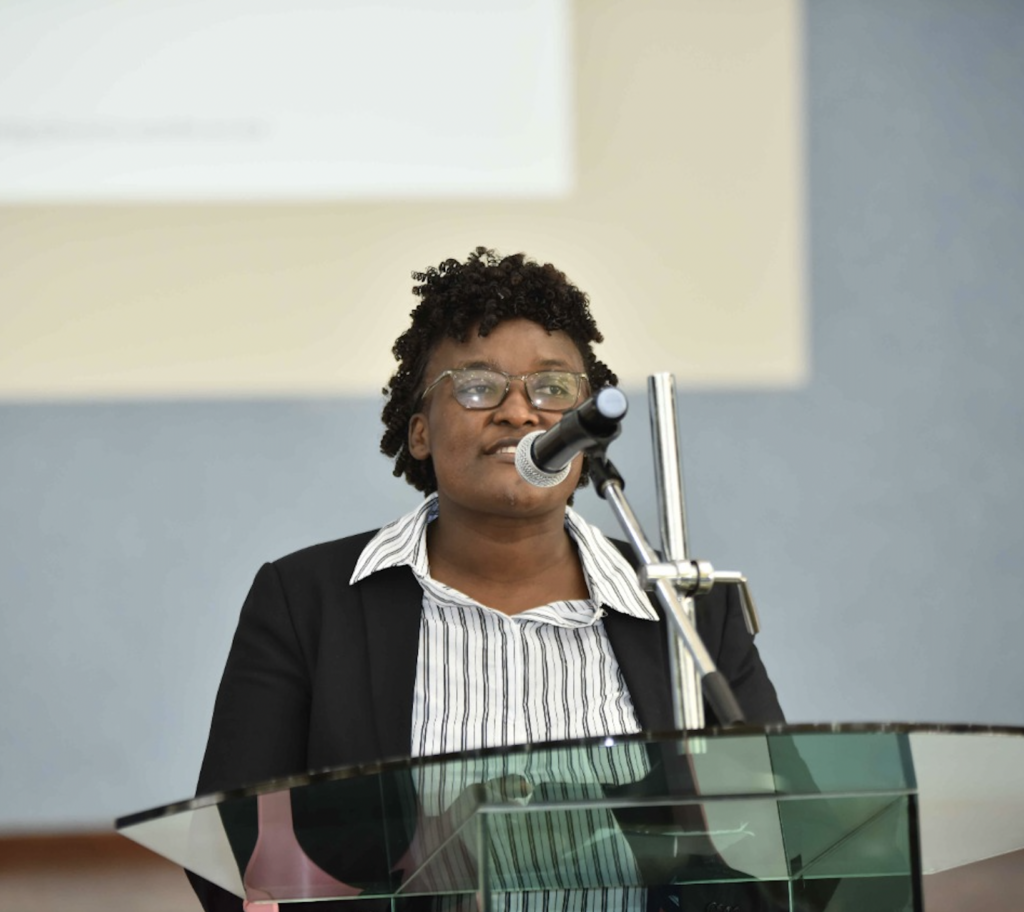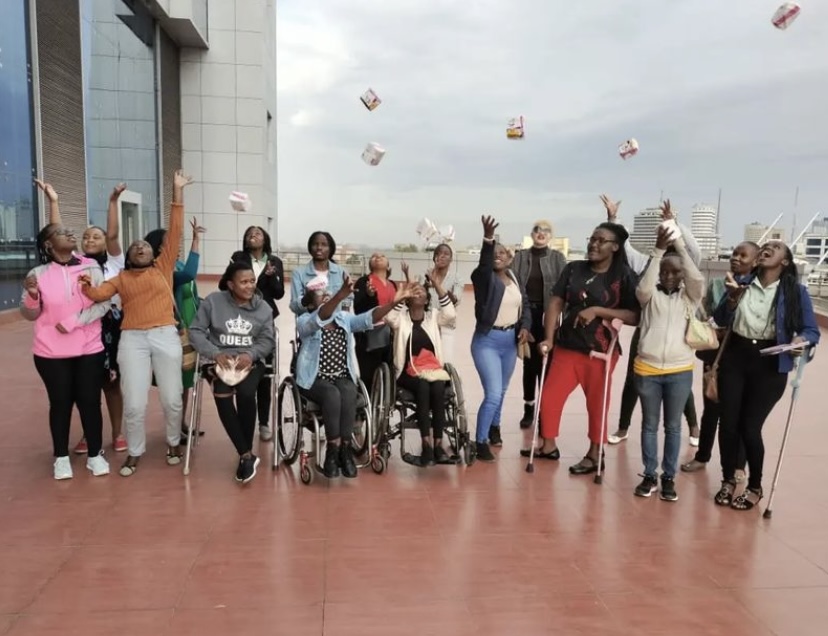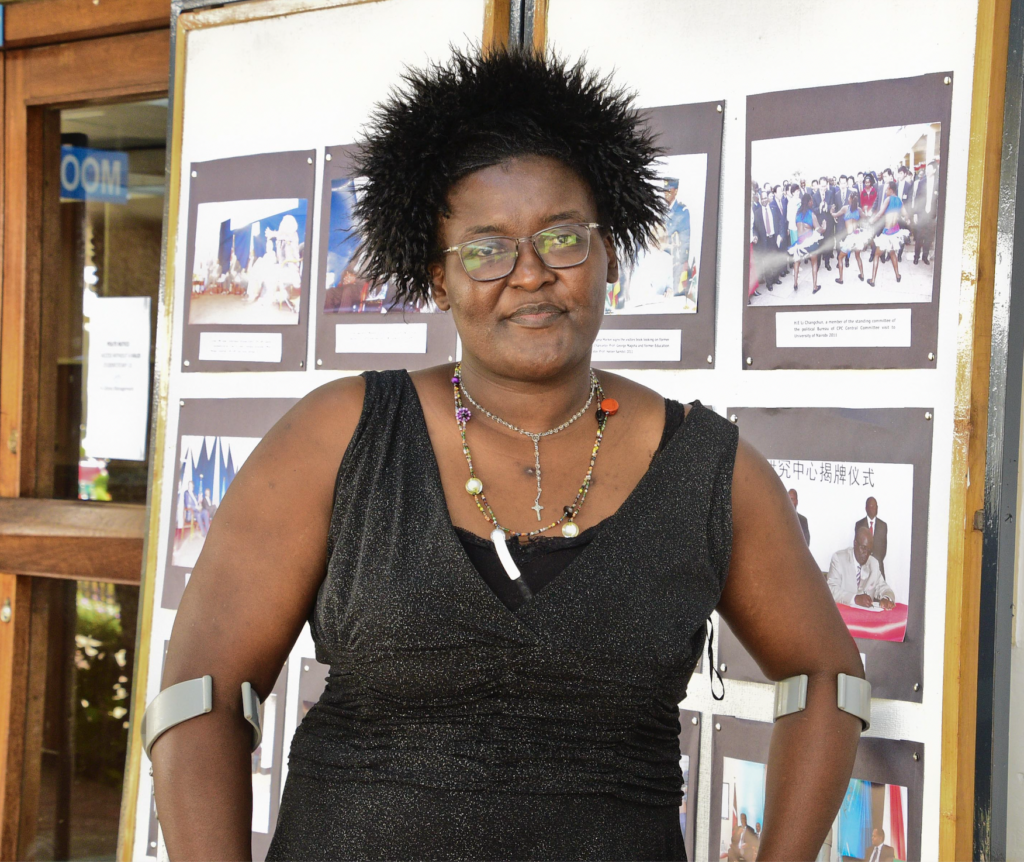YOUR PRIVACY
To enhance your experience with our site, many of our web pages use “cookies” and shopper ID’s. Cookies are text files we place in your computer’s web browser to store your preferences. To find out more, read our updated privacy policy.
"Let girls and women with disabilities be at the center of policy and advocacy, because the wearer of the shoe knows where it pinches. They know best how issues affecting them should be addressed."
– Mildred Adhiambo Omino
Disability Liaison Officer, University of Nairobi
Cofounder and Executive Director, Bintisphere
Mildred Adhiambo Omino
Mildred is a Kenyan gender and disability rights activist. She works as the disability liaison officer at the University of Nairobi advocating for the sexual and reproductive health and rights of girls and women living with disabilities. She is also the co-founder and executive director of Bintisphere Society, a women-led organization empowering girls with disabilities in Kenya to achieve full participation in society by inculcating the powers of self and collective advocacy as tools for meaningful inclusion in social and economic life.
Mildred was born into a large family in Kisumu West near Lake Victoria. Her mother and father worked at a nearby health facility as a nurse and clinical officer. After contracting polio at an early age, Mildred was inspired to become an advocate for girls and women living with disabilities.
She shares that many people find it unimaginable that she contracted polio when her parents, who worked as healthcare practitioners, were well aware of the vaccine. Mildred explains that it reveals the deep healthcare inequalities impoverished rural communities face. The polio vaccine requires refrigeration, but there was no electricity at the health facility where she was vaccinated. Mildred said she was thus given an expired vaccine that was most likely what exposed her to the virus, instead of protecting her from it. When her parents explained to her how such inequalities left their family and the wider community vulnerable, Mildred developed a keen interest in creating change. “I cannot keep quiet when inequalities continue to exist. Inequalities pushed me to be where I am today.”
Growing up, Mildred also experienced another health inequality – she, and her peers, did not have access to critical sexual and reproductive health information or education. Quite the opposite, in fact. She instead witnessed the vilification of adolescents exploring relationships and sexuality. Girls and boys at her school who were suspected of being in a relationship were paraded in assemblies, humiliated, and even suspended from school for it. She says the experience haunted her, instilling fear that if she befriended a boy, she too would be humiliated by her school administration.
This kind of stigma and shame around sexual and reproductive health not only prevents youth from accessing important information to keep themselves healthy and safe, but also makes them more vulnerable to violence, exploitation, and misinformation. Mildred recalls, “When I was growing up there was a surge in HIV/AIDS infections, and there were myths that women and girls living with disability can be used to cleanse the infected men.” In addition to jeopardizing the safety of women and girls with disabilities, such myths also reinforce harmful stereotypes that create even greater barriers to equitable healthcare services, experiences, and health outcomes. There is truly a dual marginalization that women and girls experience due to their gender and disability status.
Mildred shares that women with disabilities across Kenya experience other health-related injustices, including higher rates of maternal mortality, inaccessible healthcare facilities and information, and even forced sterilization. “We must come to an understanding that girls and women with disabilities are highly vulnerable, heavily impacted, and have limited opportunities to even defend themselves when they encounter sexual and gender-based violence.”
After graduating from high school, Mildred went on to receive a bachelor’s degree and a master’s in public administration. Degrees in hand, she began her powerful intersectional gender and disability advocacy. “Every time I talk about my lived experiences as a person with a disability, there is not a single day someone doesn’t tell me he is hearing something new. It means people are not aware of what we experience.”
In addition to her work with Bintisphere and the University of Nairobi, Mildred also created a website called Equity Voice, where she writes blogs and records podcasts to create awareness, dispel myths and misinformation, and connect with the community on what it means to be a girl or woman with a disability.
“I insist on women living with disabilities to claim their space in leadership. Let girls and women with disabilities be at the center of policy and advocacy intervention because the wearer of the shoe knows where it pinches. They know best how issues affecting them should be addressed.”



